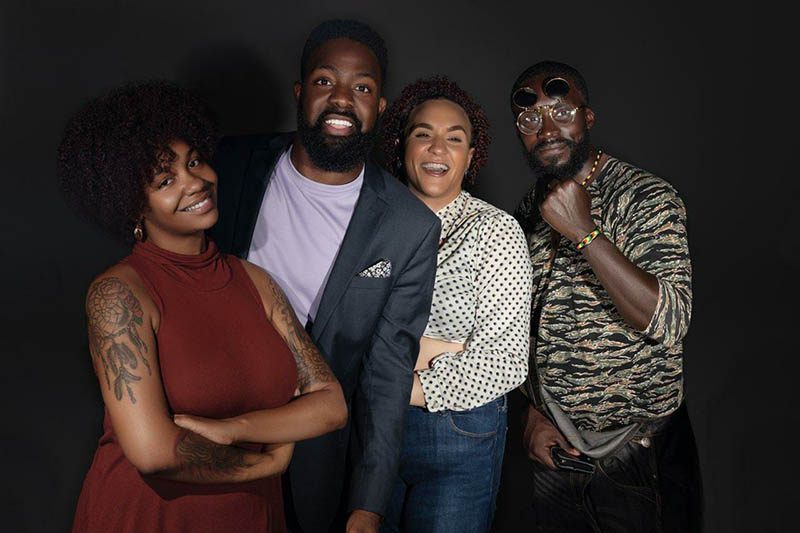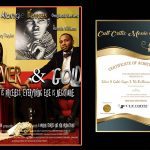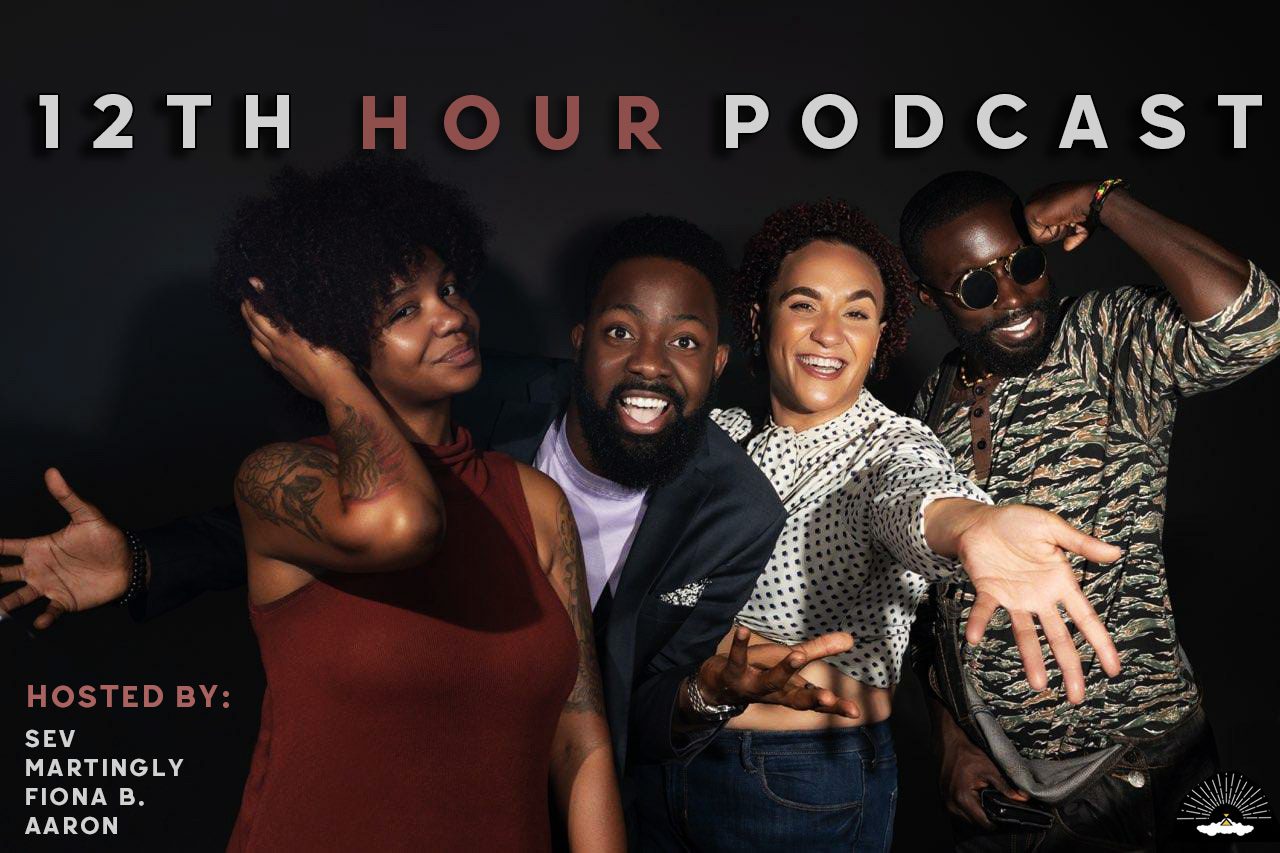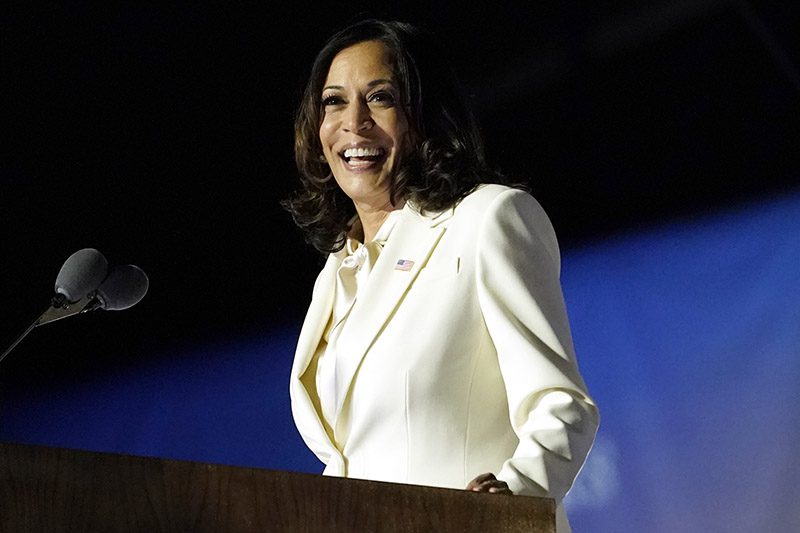
The 12th Hour podcast generates a safe space for testimony and vulnerability as four friends courageously dive beneath the surface to discuss various topics that speak on the power of healing, spirituality, and the significance of understanding in today’s world.
Created by author Martingly Nelson, the 12th Hour podcast features Nelson, Aaron Douglas, Sev Young, and Fiona Borelli, with each host offering their valuable perspectives that uniquely shape the reflective and insightful conversations.
From beneficial self-care methods to candid dialogues on the nature of sex and relationships, the “12th Hour” was established for those seeking a deeper connection with themselves and their community, and ultimately to their spirit and God. Recently making history as the first podcast to premiere at this year’s Peachtree Village International Film Festival, JARO spoke with Nelson to learn more about his role as a leader, how his relationship with spirituality is at the heart of the podcast, growth and vulnerability, and what viewers can expect in the forthcoming second season.

What should the audience know about you as the creator of the 12th Hour podcast, and what do you bring to the table?
I come as a servant. I come as someone that is broken, that has been broken, but still believes in healing, not only for myself but for the audience and for the listeners. [They should know] that I’m a transparent person, that I created this platform with people that I love to show love to people that I don’t know as well. I bring leadership and I bring understanding, which is the most important part of this because there are so many different perspectives, so many different paths that we all come from. And without understanding, there’s not much room for love, transparency, and vulnerability.
I think everyone really relied on my leadership, and empowerment is one of those key things because no one had ever really done anything like this before. Aaron and I had our own podcast, but it was audio only. So we took it to the next level and created the 12th Hour podcast when we did audio and visual. I empowered everyone to take an episode and lead it. I took that upon myself to get everybody active, to get everybody engaged. It really worked well for us because no one ever felt like, “Oh, I’m just the guy following along.” It’s like no, we’re all leaders here and we all have a story to tell, we all have something to share with the world. And I do believe that created this synergy and unity between us. Also, we’re friends off set too. It’s not an act. This is our real life, these are our real stories.
There’s one episode specifically dedicated to vulnerability, which is an incredibly important quality that many of us find terrifying. It seems that to be part of this podcast in general, everyone must be open and transparent to some extent. How did you learn to be comfortable in your own vulnerability in order to do this podcast?
I believe my relationship with God really helps me in that area, because I really believe that I’ve been forgiven. I’ve forgiven myself. I am seeking forgiveness from others myself because I am not perfect, but the only way for that to happen is for me to be completely vulnerable and open about certain things, or just anything for that matter. Because then it creates not only healing for me, but it creates healing for whomever is listening where they can come to terms with it.
For the longest, I had this sense of shame, sense of guilt. And the more I opened up, the more I realized that I’m not alone. I think people often think that they’re alone, and that’s why they’re less vulnerable, or they’re afraid to be judged. And I started realizing that the fear of judgment was actually making me a prisoner because it wasn’t setting me free. It was just creating more pain.
How have you and the team experienced growth through the podcast?
I’ve seen a lot of growth. I’ve seen confidence, I’ve seen a lot more openness about things. It’s so crazy––the stuff we’ve talked about on the podcast have translated so much more in our day to day lives. It makes me proud to see my friends become more in tune with themselves. We are able to have very real, raw conversations that most people would crumble under.
And for me, it’s helped me in leadership a lot because I can lead our team. I don’t lead a perfect life by any means, but it helps me have more grace not only with myself, but with others. To see how open some people have been and then how they’re going about their lives in different situations, because our people and supporters have shared some stories with us and have shared their perspectives with us that make us go, “Wow. Man, we are so similar in so many ways.”

I love how respectful you all are of differing perspectives, which isn’t something you see much in today’s polarizing climate.
What are some ways that you believe the world could benefit from listening to the podcast?
I think the world we live in today is so vain, and so reactive. Everything’s about pop culture, reality TV. Everything’s about what sells. [The 12th Hour podcast] is probably not going to sell. And not to say that it can’t, it’s just not always going to be sexy. But where we’re at in the world, especially during the time of COVID, during the pandemic and post-pandemic, the world has changed. But not because something has changed, but because now we’re more aware.
And if we’re more aware, there has to be an action behind that. We realize that times have changed. We realize that we’re closer to the end than we are the beginning, and I don’t mean the end as some type of demise, but it’s just like the end of our old ways. And we need to create new ways if we want to see healing, if we want to see the benefits of living a happy, merry life instead of putting up a facade of it.
The world needs these types of conversations because we can’t fake the funk anymore. We can’t live in this false reality. I know we’re doing artificial intelligence, augmented reality, but there are some deep things in our core no matter how many gadgets we create in this world. There’s some core human parts of us that we cannot take away. Relationships, trauma, and how we really experience love and how we give love. Those things are not going to change. We have to continue to work at those things. We need to be having real conversations that bring us closer. Because we do live in a world where there’s so much racial divide, social justice divide, political divide.
But we’re getting to the point where we not only need to get closer to our community, but we also need to get closer to God first and foremost. And that’s not even a religious statement, it’s just more so our creator. Nature, our community, that is God every single day. And that’s why the 12th Hour exists, and that’s why the world needs it.
The podcast has covered everything from dating to self-care and spirituality. Which conversation was your personal favorite to be a part of, and why?
I’m going to go with Spirituality (Episode One), because that’s when we did it. I think it set the tone for everything else. I’m a doer, and some people hesitate a lot because things have to be perfect and they get in their head about it, they get too anxious. I don’t allow my team to do that because we’re just going to do it. So we did it, and when we did it, I think it created this momentum. And ever since then, it’s kind of been our culture. Episode One was my favorite because of the topic; that’s a deep one and such an important one for me.

What are some future topics that you hope to discuss in upcoming seasons?
In season two, we want to go a little bit deeper. We want to bring on guests as well, people to talk about things that relate to mental health, relationship dynamics, and that could probably be a multi-part episode.
There’s two things that I think we missed out on growing up: Financial literacy and mental health. When people hear mental health, they think that you’re some kind of wacko, but you’re not. You’re someone that’s trying to come to peace and to terms with certain things that either become patterns, or have shown up in different ways in your life. One traumatic event can show up in a way that’s not very pleasant. Or to just have someone to talk to about things.
We want to go deeper into spirituality as well. There are some things that we want to talk about as it relates to the times that we’re in and how to navigate social media and its impact on us, the good and the bad. I remember when we had our premiere, we wrote down some suggestions that the crowd had about what content they would like to see in the future. Somebody had mentioned what would modern day church look like outside of the walls of the church? And I’m just like, that’s interesting, because even the podcast itself is a version of church. Because we’re not putting religion on people, but we’re still offering an opportunity to heal, an opportunity to connect. Fellowship, in a sense.
* * * * * * * * * * * * * * * * * * * * * * * * * * * * * * * * * * * * * * * * * * * * * * * * * *
When reflecting on how the “12th Hour” began earlier this year and the success it has achieved in only a year’s time, Nelson said, “It was on my heart to do this podcast, and God provided. The set, our production team, our business, everything just started aligning. The process isn’t always pretty, but the beauty is in the process. Now I’m hearing the feedback we get after going to the film festival. This is all within one year. It’s not like we’ve been doing this for like 10 years or something. We just did it this year and was able to touch so many lives, so many people.”
Martingly Nelson is the author behind the literary work present in each episode of the “12th Hour.” Titled Lyrical Therapy: Dynamic Perspectives, it is an empowering and healing compilation of poems that serve as a source of inspiration for aspiring creatives, professionals, athletes, and more. Purchase a copy via Amazon.
The 12th Hour podcast is presented by The ARC Collective creative agency, and produced by Jan Ison, Jazaida Hall, and Martingly Nelson. James M. Holmes is the Director of Photography. Stream the podcast via YouTube, Spotify, Apple Music, or Audible, and stay up to date with future episodes by following on Instagram @12thourpodcast.
Follow the hosts:
Martingly / Fiona / Sev / Aaron







